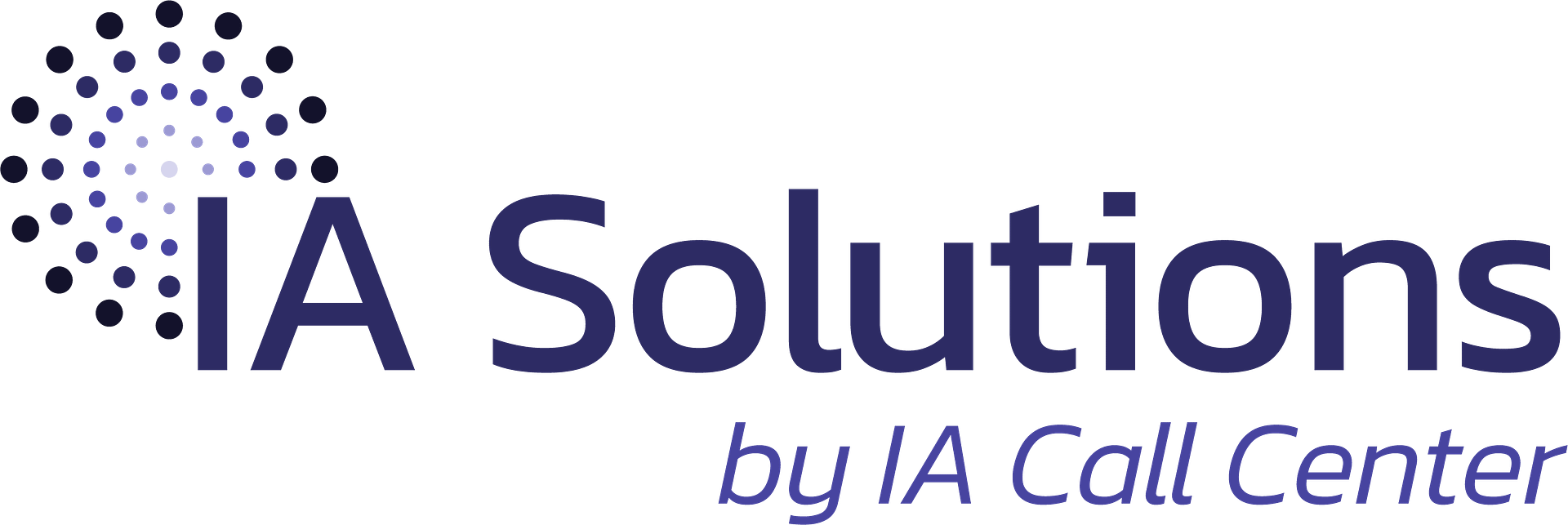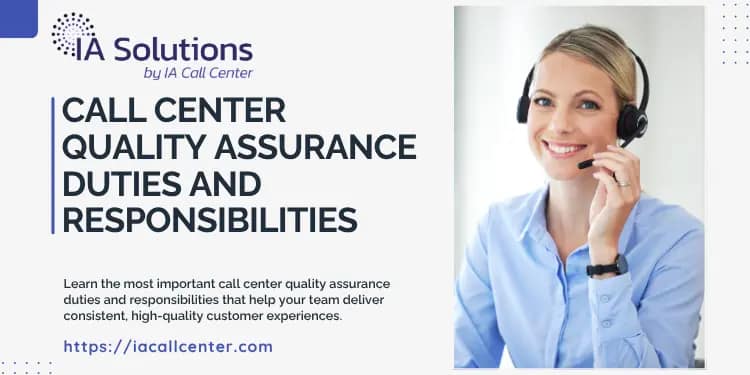In any call center, making sure that every customer interaction is a good one is really important. This is where call center quality assurance duties and responsibilities come into play. It’s not just about checking boxes; it’s about making sure agents are doing their best and customers are happy. This involves a whole set of tasks, from listening to calls to figuring out how things can be better. Let’s break down what this job really involves and why it’s a big deal for any call center.

Key Takeaways
- Call center quality assurance involves monitoring agent performance, analyzing interactions, and ensuring adherence to company standards to improve customer satisfaction and service quality.
- Core duties include evaluating calls, tracking key metrics, providing feedback to agents, and developing processes to maintain consistent service delivery.
- Effective QA specialists identify areas for improvement, recommend training, and use data to drive better customer experiences and operational efficiency.
What Is Call Center Quality Assurance and Why It Matters
Call center quality assurance, often shortened to QA, is basically the process of checking to make sure that customer interactions are up to par. Think of it as a quality control system for how your agents talk to customers. It’s not just about catching mistakes; it’s about making sure every customer gets a consistent and positive experience, no matter who they talk to. This consistency is super important for keeping customers happy and for the company’s reputation.
Why does this matter so much? Well, in today’s world, customers have a lot of choices. If they have a bad experience with one company, they can easily go somewhere else. QA helps prevent those bad experiences by looking at things like how agents handle calls, if they follow the right procedures, and if they actually solve the customer’s problem. It’s all about making sure the service provided meets the company’s standards and the customer’s expectations.

Here’s a quick look at what QA typically involves:
- Monitoring Calls: Listening to recorded calls or observing live ones to see how agents perform.
- Evaluating Interactions: Using a scorecard to rate agents on things like politeness, accuracy of information, and problem-solving skills.
- Providing Feedback: Giving agents specific tips on how to improve their performance.
- Identifying Trends: Spotting common issues that might need bigger changes, like updating training materials or improving processes.
This kind of oversight helps identify areas where agents might need more training or where processes themselves could be smoother. It’s a way to continuously improve how the call center operates, which directly impacts customer satisfaction and loyalty. You can find more information on how to improve call center metrics here.
QA isn’t just a policing function; it’s a development tool. It helps agents grow their skills and feel more confident in their roles, which in turn leads to better customer service. It’s a win-win situation for everyone involved.
Core Duties of a Call Center Quality Assurance Team
The core duties of a call center quality assurance team revolve around maintaining and improving the standard of customer interactions. This involves a systematic approach to monitoring, evaluating, and providing feedback to agents. The primary goal is to ensure every customer contact aligns with company objectives and delivers a positive experience. This team acts as the guardian of service quality, making sure that agents not only follow procedures but also represent the brand effectively.
Key duties include:
- Monitoring Interactions: Regularly reviewing calls, chats, and emails to assess agent performance against established criteria. This helps identify adherence to scripts, proper handling of issues, and overall customer service effectiveness.
- Performance Analysis: Analyzing data from monitored interactions, alongside key performance indicators (KPIs), to spot trends, recurring issues, and areas needing attention. This might involve looking at metrics like average handle time, first call resolution, and customer satisfaction scores.
- Feedback and Coaching: Providing constructive, actionable feedback to agents based on evaluations. This isn’t just about pointing out mistakes; it’s about guiding agents toward improvement through targeted coaching sessions.
- Process Improvement: Identifying opportunities to refine existing call center processes and procedures. This feedback loop helps update standard operating procedures (SOPs) and training materials to better support agents and customers.
- Calibration Sessions: Participating in regular meetings with supervisors and other stakeholders to ensure consistent evaluation standards across the team. This alignment is vital for objective assessments.
Here’s a look at how some of these duties translate into specific actions:
| Duty Category | Specific Actions |
|---|---|
| Interaction Monitoring | Listen to call recordings, review chat transcripts, analyze email exchanges. |
| Performance Analysis | Track quality scores, customer satisfaction (CSAT) ratings, and agent productivity metrics. |
| Feedback & Coaching | Conduct one-on-one coaching sessions, provide written feedback reports, and suggest training modules. |
| Process Improvement | Document observed process gaps, recommend SOP updates, and collaborate on new procedure development. |
| Calibration | Participate in scoring discussions, compare evaluations with peers, and reach consensus on quality standards. |
The call center quality assurance process is not a static checklist; it’s a dynamic system. It requires continuous adaptation to new customer needs, evolving business strategies, and technological advancements. The team’s ability to adapt and refine its methods directly impacts the overall success of the call center. This systematic approach helps in achieving consistent service levels.
Ultimately, the call center QA responsibilities are about creating a culture of quality. This involves not just checking boxes but actively contributing to agent development and operational efficiency. By focusing on these core duties, the QA team plays a significant role in shaping the customer experience and supporting the business’s bottom line. This is a key part of the overall call center quality assurance process.
Key Responsibilities of a Call Center Quality Assurance Specialist
A Call Center Quality Assurance Specialist has a pretty important job. They’re the ones making sure that every customer interaction meets the company’s standards. It’s not just about listening to calls; it’s a whole process.
Here’s a breakdown of what they typically do:
- Monitoring Interactions: This involves listening to recorded calls, reading chat logs, and reviewing emails. The goal is to see how agents handle customer issues, if they follow procedures, and if they’re being helpful and polite. This direct observation is key to identifying both strengths and weaknesses.
- Providing Feedback: After reviewing an interaction, the specialist gives constructive feedback to the agent. This isn’t about pointing fingers; it’s about helping agents improve. They might suggest better ways to phrase things or explain a policy more clearly.
- Analyzing Performance Data: Specialists look at various metrics, like customer satisfaction scores (CSAT), first-call resolution rates, and average handle times. They try to figure out how these numbers relate to the quality of the interactions they monitor. This helps them spot trends and areas needing attention.
- Developing Quality Standards: They help create and update the guidelines that agents need to follow. This means defining what good customer service looks like for the specific company.
- Participating in Calibration Sessions: These are meetings where QA specialists and other stakeholders (like team leads) listen to calls together and discuss their evaluations. This makes sure everyone is on the same page about what constitutes quality service.
- Identifying Training Needs: Based on their reviews, specialists can pinpoint areas where agents might need more training. They might then work with training departments to develop new programs or update existing ones. This proactive approach helps prevent future issues and supports agent development.
The specialist acts as a bridge between the company’s quality goals and the day-to-day work of the agents. They need to be good listeners, clear communicators, and have a solid grasp of what makes for a positive customer experience. It’s a role that directly impacts customer satisfaction and the overall success of the call center. You can find more about best practices in contact center quality assurance.

They also often help in creating standard operating procedures (SOPs) and making sure everyone sticks to company policies. It’s a lot of detail-oriented work, but it’s vital for keeping customers happy and the business running smoothly.
Best Practices for Effective Call Center Quality Assurance
To really make sure your call center’s quality assurance program is hitting the mark, there are a few things you should focus on. It’s not just about listening to calls; it’s about building a system that actually helps agents improve and keeps customers happy.
First off, consistency is key. You need a unified way to check quality across all the different ways customers get in touch, whether it’s a phone call, email, or chat. This means everyone on the QA team is looking for the same things and using the same standards. It helps avoid confusion and makes sure the customer experience feels the same no matter how they reach out. Implementing a unified evaluation system across all customer interaction channels is a crucial best practice for modern call centers. This approach ensures consistent quality.

Here are some practical steps to get your QA program running smoothly:
- Develop clear evaluation forms: These aren’t just for checking boxes. They should guide agents on what good looks like and pinpoint specific areas for growth. Make sure these forms are updated regularly as things change.
- Hold regular calibration sessions: Get everyone involved – QA specialists, team leads, and even agents – to talk about call evaluations. This keeps everyone on the same page about what quality means and how to measure it fairly.
- Use technology wisely: Tools that monitor calls and analyze data can spot trends you might miss. Real-time monitoring can also help catch issues before they become big problems. A good quality monitoring solution can provide actionable analytics and real-time reports.
- Focus on coaching, not just scoring: The goal isn’t just to give agents a score. It’s to help them get better. Use the evaluation findings to provide specific, helpful feedback and training.
- Stay updated on industry changes: The world of customer service is always moving. Keep an eye on new technologies, customer expectations, and any new rules that might affect how you operate. This helps you adapt your QA strategy to stay relevant and effective.
It’s also important to remember that QA isn’t just a policing function. It’s a partnership aimed at improving the overall customer experience and agent performance. When agents see QA as a tool for development rather than just an audit, they’re more likely to engage and improve.
Finally, remember that good QA practices are a big part of successful call center outsourcing. By focusing on these best practices, you build a stronger, more effective call center that benefits both your team and your customers.
How Quality Assurance Drives Call Center Success
Quality assurance in a call center isn’t just about checking boxes; it’s a direct engine for growth and customer loyalty. When QA processes are solid, they help make sure every customer interaction aligns with what the company stands for. This consistency builds trust, which is pretty important for keeping customers around.
Think about it: a well-run QA program means agents get clear feedback. This feedback helps them improve their skills, handle calls better, and solve problems more effectively. When agents are more skilled, customers get better service, and that often means they’re happier. Happy customers are more likely to return and even recommend the company to others.

Here’s how QA makes a difference:
- Improved Customer Satisfaction: By monitoring interactions and identifying areas where agents might struggle, QA helps refine training and coaching. This leads to agents who are better equipped to handle customer needs, resulting in higher satisfaction scores.
- Increased Agent Efficiency: Regular feedback and targeted training based on QA findings can boost agent performance. This means agents can handle more calls or resolve issues faster, making the whole operation run smoother.
- Reduced Operational Costs: When agents resolve issues on the first contact, it cuts down on repeat calls and the need for further follow-up. This saves time and resources, directly impacting the bottom line.
- Better Compliance: QA ensures agents stick to company policies and industry regulations. This protects the company from potential fines or legal issues.
Ultimately, a strong quality assurance strategy helps create a positive feedback loop that benefits everyone involved – the agents, the customers, and the business itself. It’s about making sure that every call, chat, or email contributes positively to the customer’s overall experience and strengthens the company’s reputation. For a deeper look into how to measure this impact, understanding call center quality assurance metrics is key.
Making sure your call center runs smoothly is super important. Quality checks help find problems and make things better for everyone. Want to see how we can help your business shine? Visit our website today!
Wrapping Up Quality Assurance
So, we’ve gone over what call center quality assurance is all about. It’s not just about listening to calls; it’s a whole system. It involves checking how agents talk to people, making sure the company’s rules are followed, and finding ways to make things better. By doing all this, businesses can keep customers happy and make sure their support team is doing a good job. It’s a lot of work, but it really makes a difference in how customers see the company.
Frequently Asked Questions
What exactly does a quality assurance specialist do in a call center?
A quality assurance specialist in a call center listens to calls and reviews other customer interactions. They check if agents are following the rules, being helpful, and making customers happy. They also look for ways to help agents get better at their jobs by giving them advice and training.
Why is quality assurance important for a call center?
Quality assurance is super important because it makes sure every customer has a good experience. When customers are happy, they are more likely to stay with the company. QA helps catch problems early, makes sure agents know what they’re doing, and keeps the company’s service top-notch.
How does quality assurance help improve customer service?
Quality assurance helps improve customer service by finding out what customers like and don’t like. By listening to calls and looking at feedback, QA specialists can see where agents might be struggling or where the company’s rules could be clearer. They then work with agents and managers to fix these issues, leading to better service for everyone.












